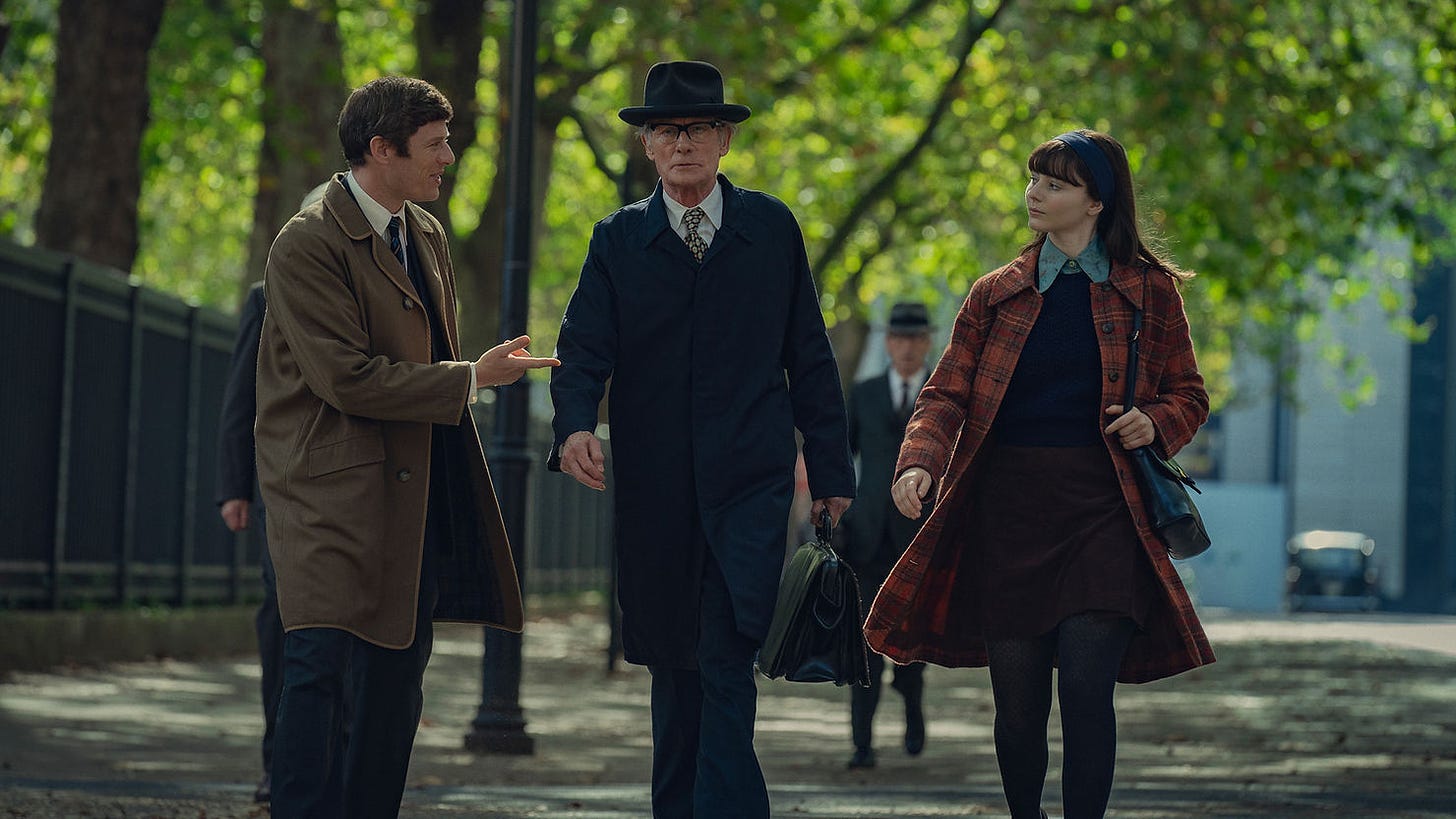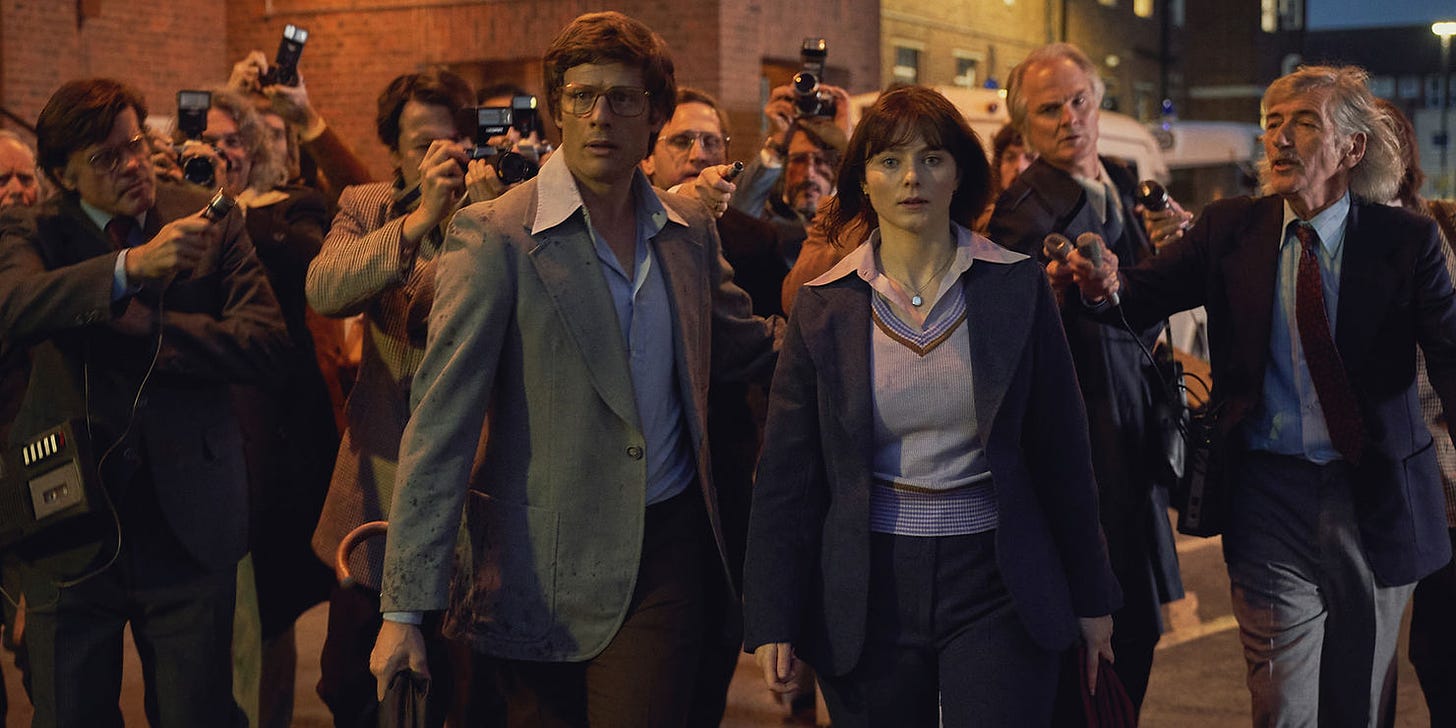Joy review - Typical British Drama with Incredible Heart
The biopic has been a staple of British filmmaking for years, but Joy stands out as harrowing but also warm, inviting, enduring and inspiring. It tells the tale of the creation of IVF. Set in both Cambridge and Oldham between 1968 and 1978, the film tells the enduring tale of the birth of the first test tube baby Louise Joy Brown, to which her middle name — the name the team of doctors chose, as the film’s title. A title that also serves as the heartwarming emotion that a story like this forces out of us, yet never falls into schmaltz or cringe.
Whilst it has the big American corporation of Netflix behind its distribution, this is a very British tale — in the style that the British film industry has built itself on for generations. It has an almost industrious style, clean and simple filmmaking, it doesn’t distract, but neither does it look dull or bland, using its period aesthetic to highlight its very British setting. Hosting a British cast including Bill Nighy and James Norton, with Kiwi Thomasin McKenzie slotting in seamlessly as the film’s central figure Jean Purdy, to whom James Norton’s Bob Edwards notes, without her none of this would have been possible. Indeed the film is a testament to Jean and her accomplishments in this monumental feat. Indeed, millions of people are indebted to her work as she helps find a cure for childlessness, which the film describes as a disease which people shrug off and ignore.
Whilst Joy looks like and is presented as standard British fair, a typical three-star, run-of-the-mill true story that will be brought up in conversation because of the achievement of the plot, it offers something more than that. The film holds a great sense of survival, which could have easily fallen by the wayside. It is a film about great resilience, carrying with it a great sense of British stubbornness and an unflinching desire to do the right thing even when the world is against you, a tone that is carried consistently throughout the film. Not only does this us against the world theme work well within the confines of the euphoric and emotionally swaying cinematic form but the resilience also serves as a key and inspiring characteristic that those going through IVF treatment have in abundance. Joy is quite rigidly structured, at times bending the truth to make a more intriguing watch, and at times the beats feel so formed and recognisable it verges on quite predictable, though nonetheless an enthralling watch.
As all good films are, the film is held together by assured performances that give great grace to their real-life figures. The ever-radiant Bill Nighy gives another great performance as Patrick Steptoe a rebellious troublemaker who interrupts the status quo. James Norton is also brilliant as the bumbling Bob Edwards with an unassuredness in his Yorkshire accent, but nevertheless a fighting spirit, constantly defending himself — a front for the press with a journalist for the Mirror at one point asks him whether he is Dr Frankenstein. At the centre however is Thomasin McKenzie’s Jean in a quiet, unassuming but defiant performance.
The film is full of rich layers, with obstacles hurled in the central trio’s way. At one point Bill Nighy even states they will have the church, state, and the world against them. Meanwhile Jean particularly has to fight her religious upbringing, with Jean’s Mother often playing a symbolic placeholder. She tells Jean IVF is unnatural, instead prayer is the answer, telling her she can’t play God. Jean is disowned and lonely throughout much of the film, making the accomplishment that much greater, as the film treats the process of IVF with great wonderment.
However, the film does falter in being a bit too conforming to structure and can at times lose a bit of its personality. Likewise, although title cards are telling the audience the time that has passed, the film struggles to accurately convey an appropriate passing of time. At one point there is a scene at New Year’s 1973, a whole 5 years after the film’s opening, yet it feels like mere months have passed. This is something that would have highlighted the enduring accomplishment even further.
Nevertheless, Joy is a great surprise and worth a watch on Netflix. It offers much more than the stereotypical British period fair. Bringing to light a figure that has too long been in the shadows in one of the greatest accomplishments in modern science.





